There is so much beauty in the world and within ourselves. And yet, sadly, many people aren’t able to, or don’t choose to, see that. After struggling to accept himself, dancer, artist, and filmmaker Apollo Bakopoulos bravely overcame crippling feelings around self-shame to begin living a life of self-love, which he then poured into his new film, Aligned (which tells the story of a closeted dancer who struggles to accept his sexuality). The film is a touching gift that audiences will delight in watching.
Read More: ‘Aligned’ Review: A Gorgeous Meditation on Self-Acceptance
In our exclusive, wide-ranging, and incredibly thoughtful interview, writer and director Apollo Bakopoulos talks about conceiving the story of Aligned from a very personal place, how he uses dance to promote vulnerability and self-acceptance, and his dream of “wanting to hold a safe space for empowerment, deep exploration of identity, sexuality, self-love, and acceptance, particularly with LGBTQ youth.”
Cinemacy: Apollo, your new film Aligned depicts the story of a closeted dancer–who struggles to accept his sexuality–beautifully. When did you first conceive of the story? What feelings did you want the film to convey?
Apollo: The genesis of Aligned came at a point in my life when I had a personal and profound experience that opened my eyes to deep truths about myself. I noticed that to feel comfortable and love myself, I was relying on external validation and approval. I mistakenly believed that I lacked something, and I maintained self-judgments around that belief and hesitated to be vulnerable enough to explore the delusion that blocked my happiness. It was a profound realization that was life-changing. This awareness led me to consider the conditions of self-love and acceptance and eventually drove me to write a script about these concepts in a way that would feel relatable.
I embarked on a journey to discover who I would be if my fear of rejection hadn’t run my life. Who would I be if I didn’t rely on someone else’s love and approval of me? Who would I be if I followed my heart and lived from my dream? I wanted the audience to experience the sensation of self-acceptance through the character’s dancing, especially how beautiful and natural it can feel to see two men dancing. I wanted these scenes to be playful and innocent and to create a story about intimacy and connection–or the lack thereof–between two people.
How can two people have an emotional bond and be in a partnership that embraces the authentic soul beyond sexual involvement? This question led me to a deeper investigation of the unfolding connection and love between two men, and how the harmony and conflict in this relational unfurling is mirrored in the choreographic gesture of their dance together. I wanted the men to explore and create a new experience around intimacy through dance that came from a place of innocence and playfulness instead of solely sexual gratification, external validation, and the need for approval.
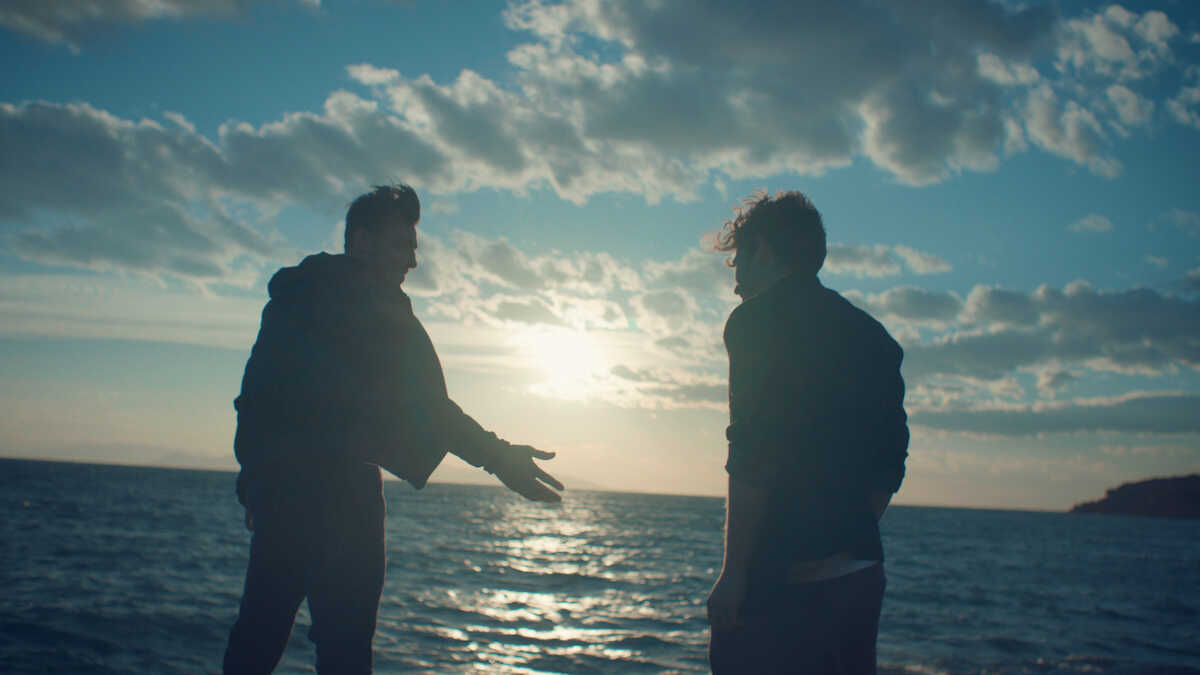
C: The camera moves gracefully, gliding around people performing ballet-like dance sequences. What did you want to communicate in those moments, and did you have any inspirations behind that?
Apollo: I’ve practiced dancing all my years living in New York to better connect with myself. It’s been a path towards self-love and, particularly, love of my body, embracing and loving all aspects of it; including any perceived imperfections. Dance has helped me express emotions and get mentally unstuck when I’m too much in my head. It gets the energy moving again. It’s an intimate moment of physical release I can have with myself. Also, dancing has helped me be more vulnerable. We say so much through dance that cannot be expressed in words. Dance helped me be more of who I am and has made me a better person by practicing the principles it embodies, such as joy, discipline, and freedom, whether I am in the act of dancing or not.
There is performance dancing, which is the practice of dance as an art. But there is also the art of living, which is the dance of life. Can I do both? Also, dance allows me to connect in a non-sexual way to others and to overcome any internalized cultural shame around dancing intimately with other men. The call for me was to overcome those limitations and create a film that inspires others to experience true intimacy, grace, and freedom and to express their love authentically in a natural way. When I felt the call, I watched a video shot at a dance retreat in Costa Rica depicting an intimate, male pas de deux. It was one of the most beautiful things I had ever seen, and I related to the viewing in a kind of joyful neutrality. It just felt right to me. It was this experience that made me ask myself: “Why haven’t I seen more of these healthy examples of male intimacy expressed in the media or real life?”
I still don’t see men dancing together publicly, except in specific locations for that purpose. I would love to see more inclusiveness instead of the current sequestration. Seeing that intimate Costa Rican dance video inspired me to create a narrative where male dancers would play the primary roles. The feelings that arise in these characters during the film connect them with the audience and allow people to relate to their situation. This situation demands self-acceptance and ultimately the capacity to see the value of being in a society that celebrates inclusivity.
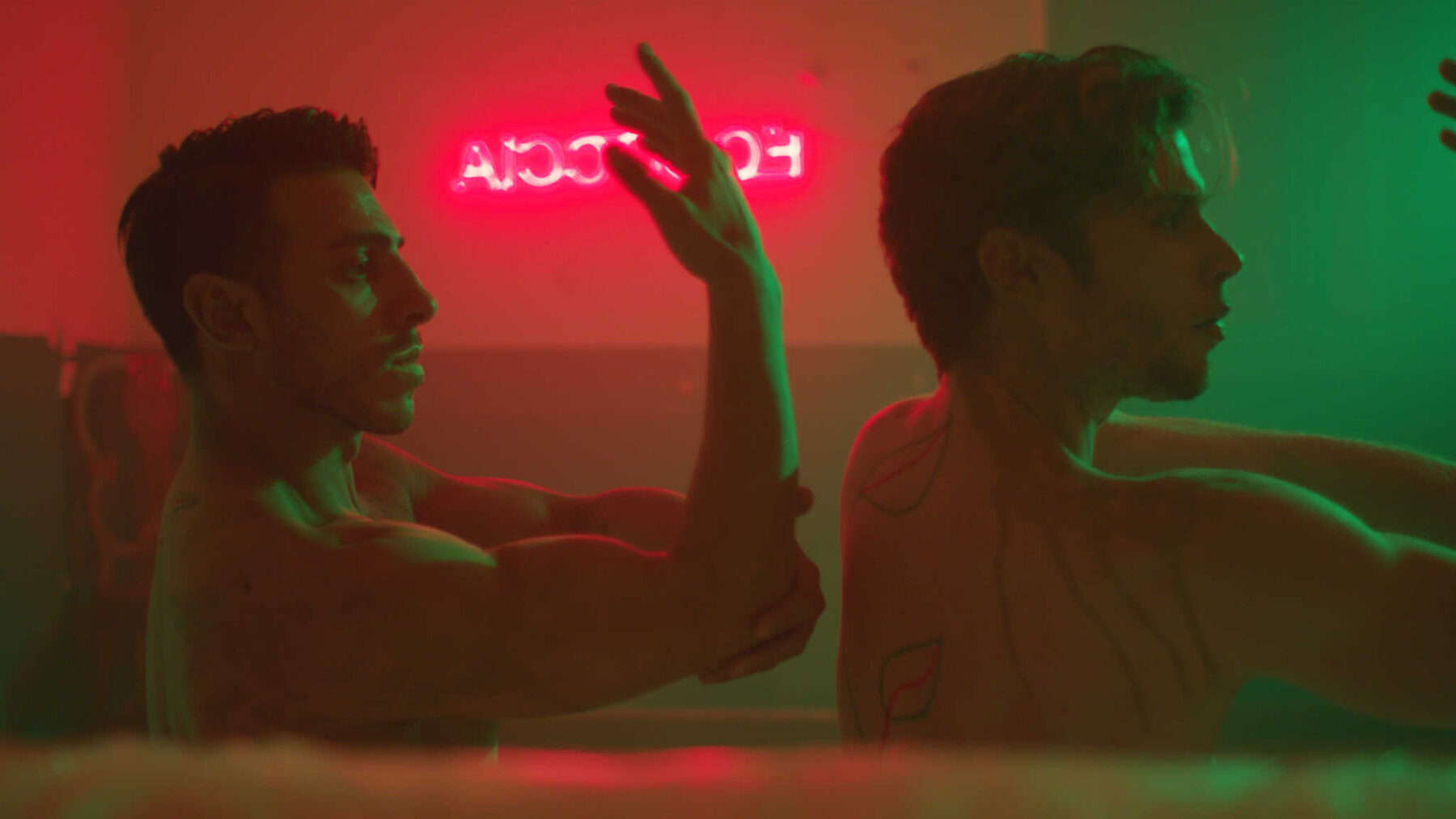
C: The themes you put forward in the film are so profound, exploring guilt and shame over a secret sexual orientation, as well as self-rejection and feeling unworthy of love. How personal were these ideas to you, and what do you feel having completed the movie?
Apollo: The story morphed quite a bit over the last three years. The themes of rejection, self-discovery, and self-love in the characters’ journey parallel my journey during this time. I, too, have struggled with stories of never being good enough or feeling unlovable. I believe the core, existential issues presented in the film are universal. I worried I would be rejected if the world knew how broken I felt inside. I feared that no one would ever love me for myself if they could see who I am, so I have hidden parts of myself. I also experienced shame around my sexuality as a gay man who came out.
For many, there is deep-seated trauma associated with coming out, not only to the world but also to oneself. Many people encounter challenges in establishing authentic connections with themselves and cultivating sustainable, meaningful relationships. We live in a society that has taken many years to progress to our current position. Often, societies’ core beliefs–structured by society and passed down through families–have excluded same-sex love and marriage. An examination of these morays reveals how shame leads to feelings of separation and inhibits intimacy due to the fear of rejection.
By removing these elements, we can find real intimacy and self-love, and foster community, closeness, and beautiful relationships. Confronting my fears has been essential for an experience of authenticity. As I adopted certain practices and mindsets, as the characters do in the film, I experienced internal healing and stepped away from living in fear, shame, and low self-esteem and towards living in grace and faith.
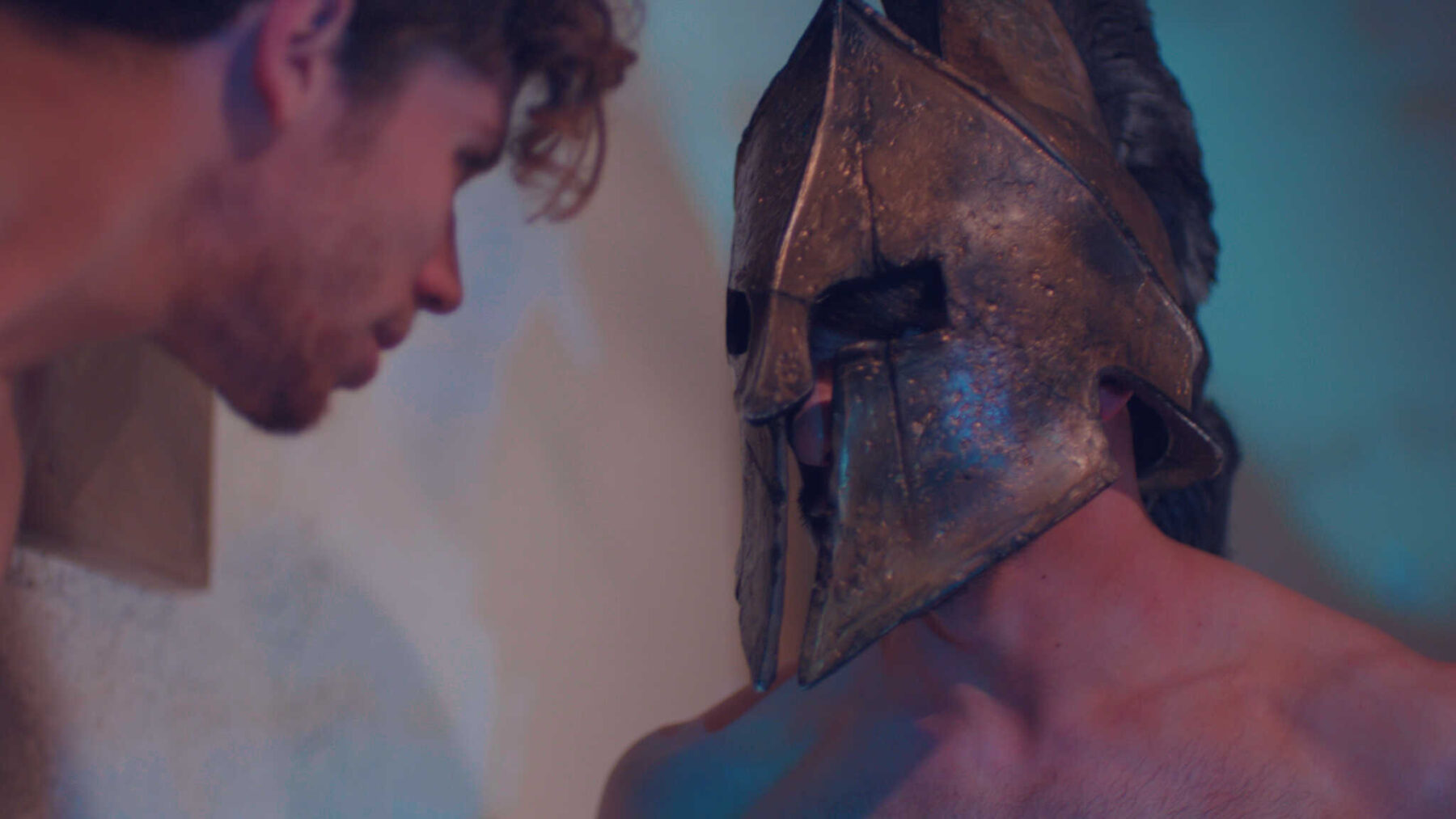
C: Can you talk about the pre-production process? After writing the film, what steps did you take until you were ready to shoot?
Apollo: The initial stages of writing and moving into production progressed swiftly. I completed the Greek portion of the script within two months, and within another two months, we were already in production in Greece. It took about four months to commence shooting. This involved bringing together the right individuals, engaging in meaningful conversations, and clarifying the vision.
Additionally, it encompassed casting, scouting locations, and all the necessary preparations for production. However, the most crucial aspect was preparing mentally and spiritually to manage everything effectively. Our inner work constitutes 80% of the process, while the remaining 20% involves taking action.
C: What challenges did you face making the film? What were your favorite moments while making the film, and editing?
Apollo: The biggest challenge for me was, and still is managing my expectations. Staying engaged in the process and committing to my personal growth, evolving into the person I knew I needed to be, required trust in the possibility of embracing a new version of myself. Maintaining motivation throughout this journey was crucial to completing the task. The primary challenge was staying focused on the context and cultivating an inner experience that aligned with the project’s context because I couldn’t transmit something I didn’t have.
C: Another thing I love about the film is how you list productive self-help steps that can help people stay aligned, such as expressing gratitude and keeping a journal. Do you have any routines that you use?
Apollo: I believe that we are shaped by what we practice and focus on and that we can discipline our minds and thoughts to handle our circumstances more effectively. I value and commit to daily practices such as meditation, writing (gratitude journaling), maintaining a positive mindset, and being part of something bigger than myself.
I also practice breathwork, yoga, dance, and any experiences that help me connect with myself and the divine—a divinity that I often find in my communion with nature. Meditating in nature is my favorite practice. Most importantly, I often check in with my heart, asking the kinds of questions I need to listen to so I lead myself toward peace and fulfillment.
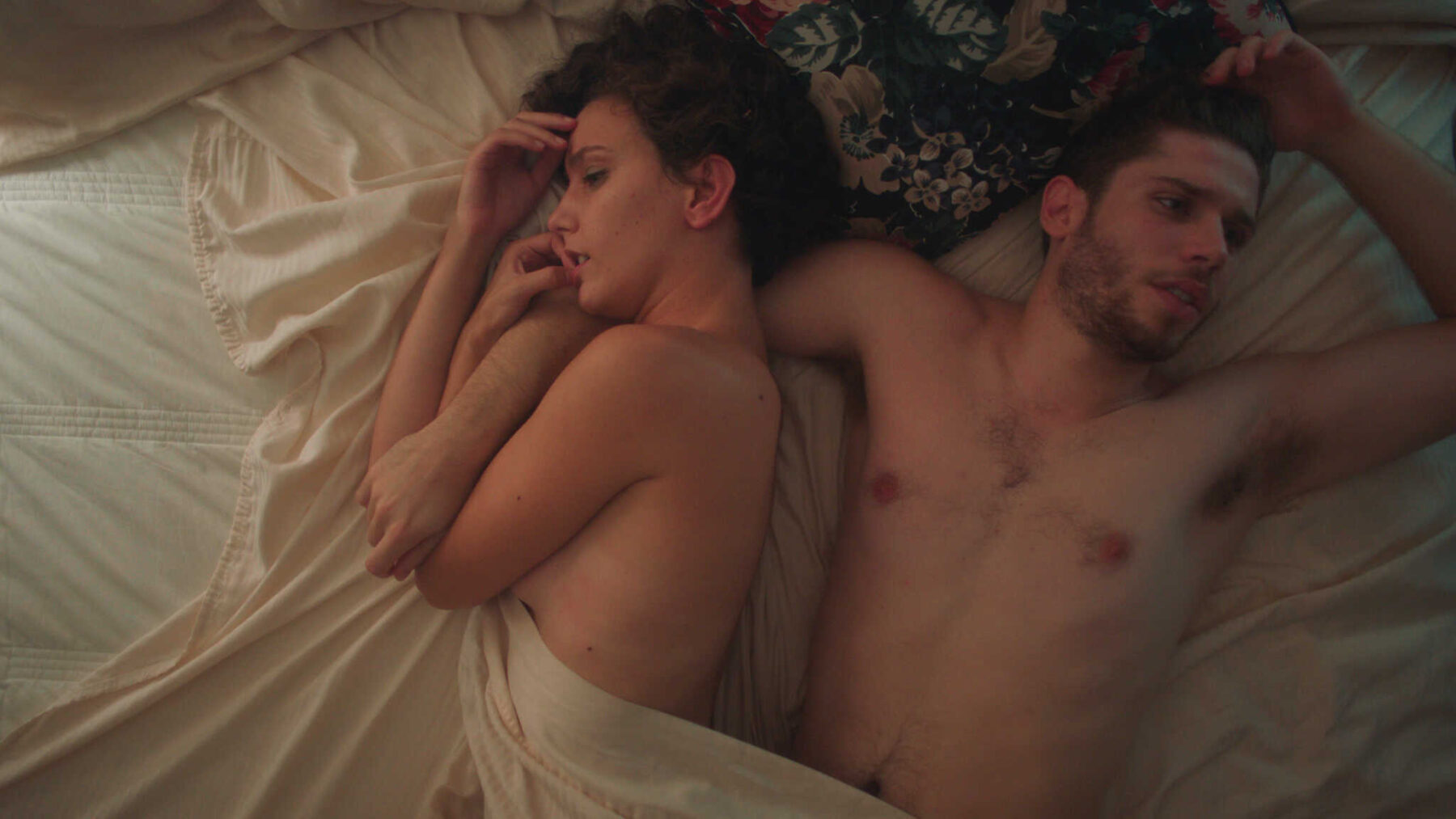
C: What do you hope the film achieves?
Apollo: To create a sense of self-compassion within the audience and inspire individuals to break free from the cycle of self-judgment. To coax the question: “Can I accept myself fully in this moment?” Even when change is inevitable, “can I accept myself as I undergo the process of change”? Learning to love and accept the self in this moment allows for the expression of life’s immediacy and vitality.
The audience should expect some of their values to be challenged as they embark on a journey in Hellas and New York, and I hope that they will fall in love with both places. Perhaps they will question themselves and ask what self-love may mean to them, or consider what they want out of life. To find their bliss, what are they willing to let go of? Additionally, the film aims to inspire the younger generation to consider an example of healthy sexuality, since this sort of representation sometimes seems to be lacking in the popular media.
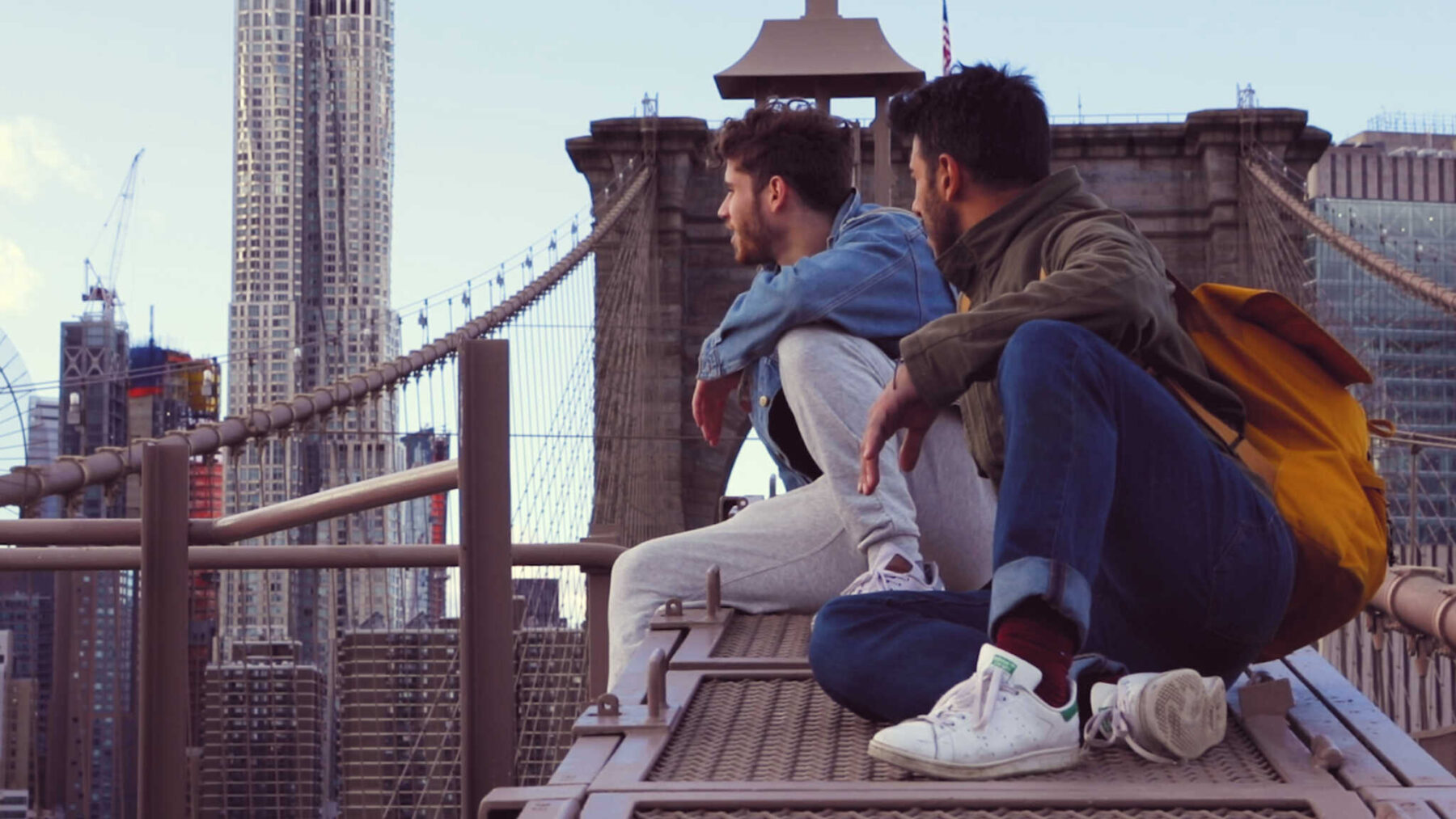
C: Apollo Bakopoulos, where were you born, where did you grow up, and where do you currently reside?
Apollo: I was born and raised in Hellas, Greece. I grew up there until I embarked on a journey at 20 years old. Since then, I’ve lived outside Greece, mostly in international areas.
Initially, I spent some time in Paris as a student and later in London, where I began my career in the industry’s early years. Eventually, I settled in New York, where I have lived for the last 14 years. New York is my home, although much of the editing was completed in Hawaii.
C: How did you get your start in filmmaking?
Apollo: I started with photography, taking pictures as a child, and then began documenting and making videos at home when we got our first camera. I never thought I wanted to be a filmmaker, but I knew I wanted to be a photographer.
A dear friend of mine who works in production had a conversation with me then, suggesting that I start filmmaking school instead of just pursuing photography. She encouraged me to do that, and I did. Since then, I fell in love with it. Filmmaking has become my life’s path.
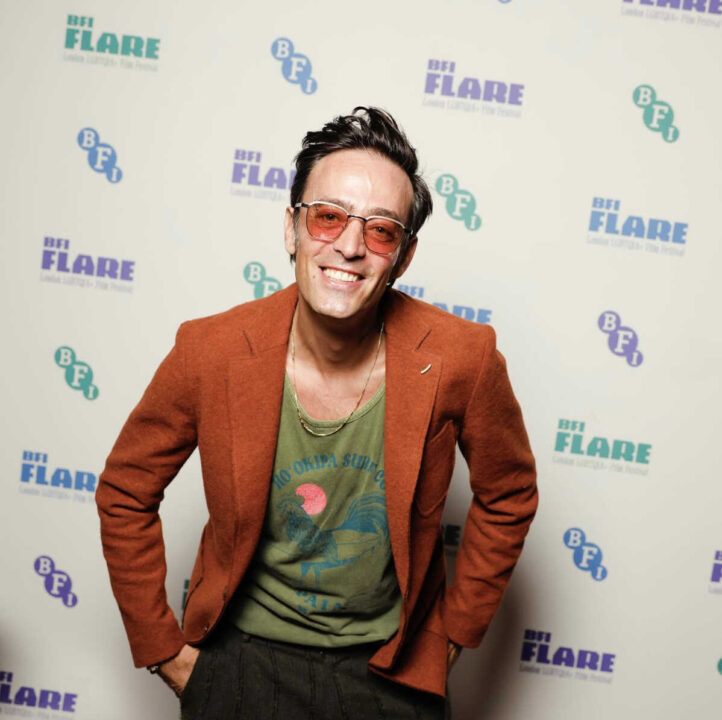
C: What have you learned about working in indie film, and what did you wish you knew before you began?
Apollo: When I am grounded and connected I am in tune with my intuition and guidance of my higher self. I find by maintaining my practices and living a life of service, I can move through fear and into trust. I also learned that every experience has a lesson, therefore, I can be grateful for the wisdom. It might have been nice to know everything before I started but then I wouldn’t have had my journey.
C: Who are your filmmaking heroes and dream collaborators? Next projects?
Apollo: I love Stanley Kubrick and David Lynch. I would also love to collaborate with people who are passionate about taking their work to the next level by empowering people and creating more LGBTQ context.
C: What messages and themes are important to you that you wish to explore in your future work?
Apollo: Holding a safe space for empowerment, deep exploration of identity, sexuality, self-love, and acceptance, particularly with LGBTQ youth. I want to normalize diversity and provide positive role models that foster a healthy self-image and encourage authentic expression.
For more on Apollo Bakopoulos and ‘Aligned,’ head to https://alignedmovie.com/.

